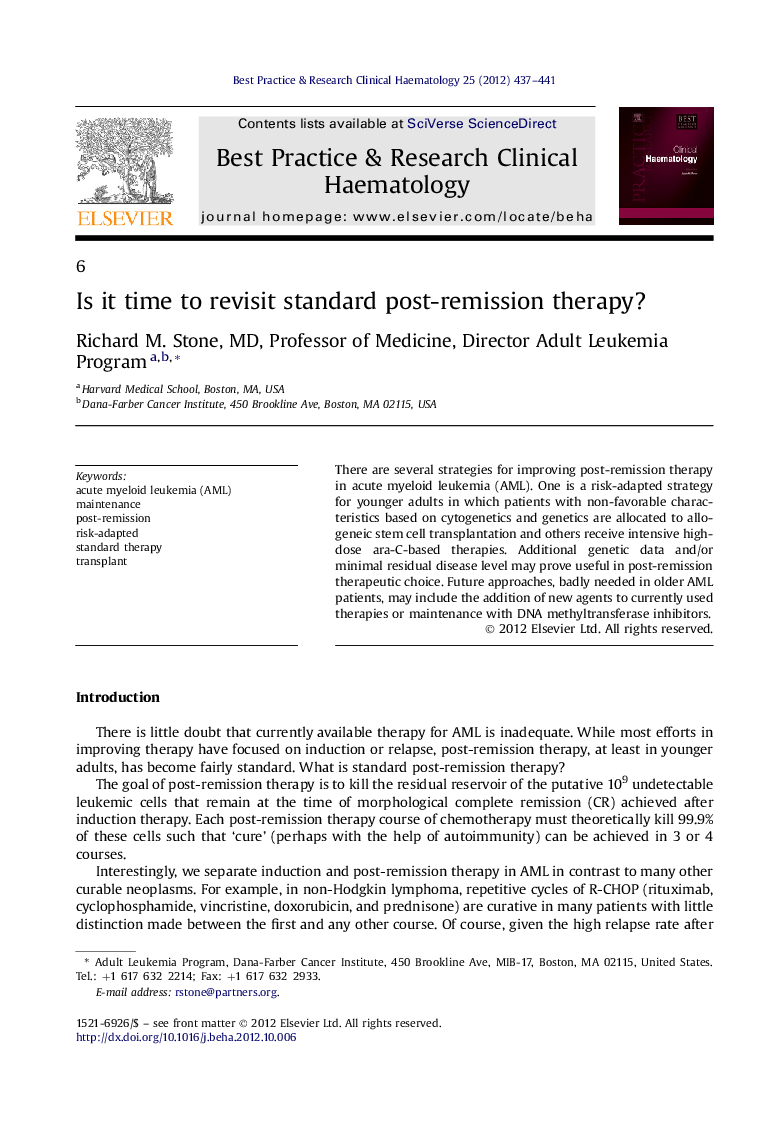| Article ID | Journal | Published Year | Pages | File Type |
|---|---|---|---|---|
| 2100191 | Best Practice & Research Clinical Haematology | 2012 | 5 Pages |
Abstract
There are several strategies for improving post-remission therapy in acute myeloid leukemia (AML). One is a risk-adapted strategy for younger adults in which patients with non-favorable characteristics based on cytogenetics and genetics are allocated to allogeneic stem cell transplantation and others receive intensive high-dose ara-C-based therapies. Additional genetic data and/or minimal residual disease level may prove useful in post-remission therapeutic choice. Future approaches, badly needed in older AML patients, may include the addition of new agents to currently used therapies or maintenance with DNA methyltransferase inhibitors.
Related Topics
Life Sciences
Biochemistry, Genetics and Molecular Biology
Cancer Research
Authors
Richard M. (Professor of Medicine, Director Adult Leukemia Program),
